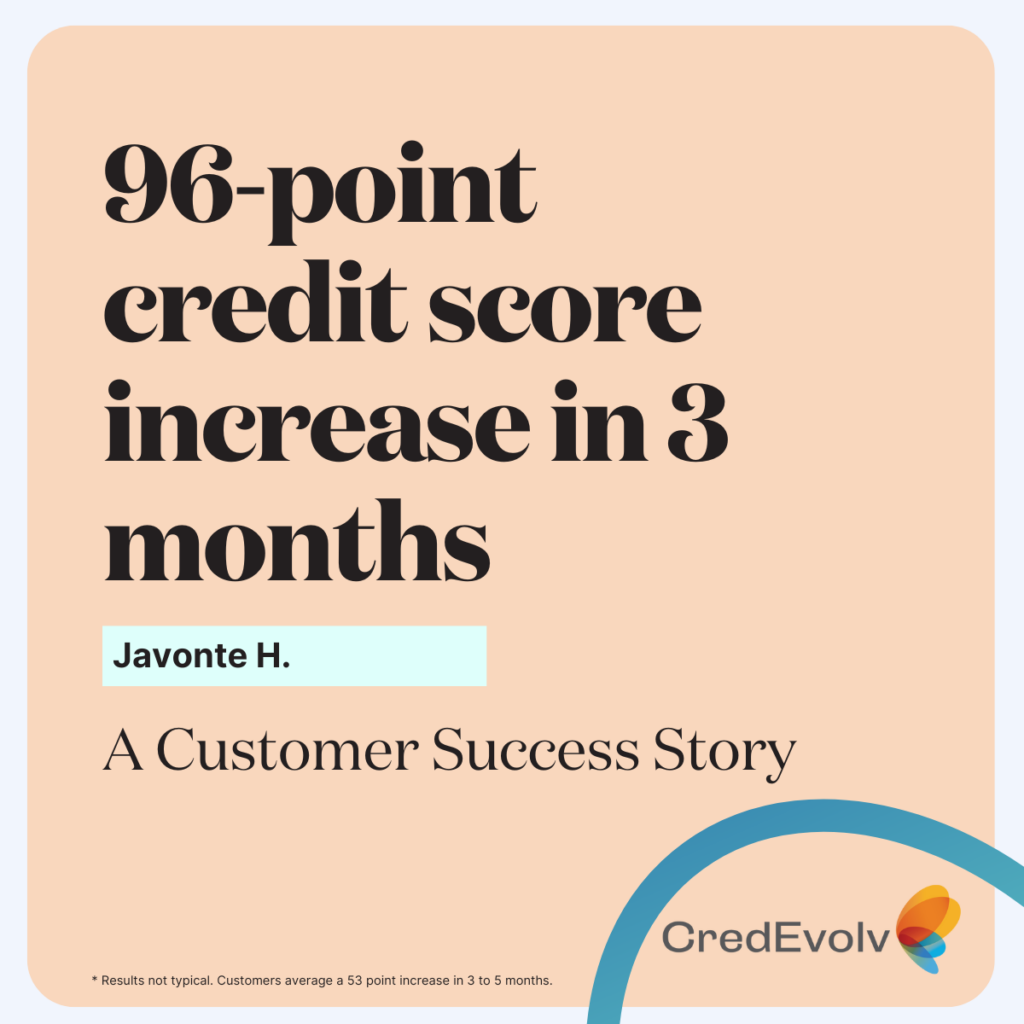Your credit report should have less of what doesn’t belong and more of what does. That’s how to elevate a 542 credit score.
This time-tested winning formula worked for Javonte H.

Javonte started on the CredEvolv platform with a 542 credit score. He had an insufficient credit history and some collections accounts on his report. His credit counselor had three of those accounts removed and he established a new line of credit. In 3 months, this boosted his score to 638, exceeding his mortgage lender’s target score of 620 and putting him well on his way to his personal goal of 700!
What can and can’t be removed from my credit report?
In an earlier Credit Education blog, we explored an important topic: understanding which items can legally come off your credit report and which must stay. Building better credit isn’t about erasing your financial past. It’s about ensuring your report is accurate and taking the right steps to improve your 542 credit score.
There’s a lot of confusion surrounding credit repair. Some companies claim they can eliminate all negative entries from your report. Credit reporting doesn’t work that way. In fact, removing legitimate negative information is illegal.
The Fair Credit Reporting Act (FCRA) mandates that credit bureaus only report accurate and verifiable information. For instance, if you’ve missed payments or defaulted on a loan, those records may legally remain on your report for up to seven years. Bankruptcies can be listed for up to 10 years, depending on the type.
At CredEvolv, we believe in transparency and integrity. The fact is, no one can legally remove valid negative items from your credit report. However, our platform connects you with certified, nonprofit credit counselors who can help you challenge inaccurate or outdated information that may be unfairly affecting your 542 credit score.
Our counselor partners are trained to identify reporting errors and unfair practices. By addressing any inaccuracies, they help ensure your credit report reflects only correct and up-to-date information. This gives you the best chance to improve your 542 credit score over time.
How quickly can I fix my 542 credit score on the CredEvolv platform?
Now is the best time to start the process of improving your 542 credit score. No matter what Google or the for-profit credit repair guys tell you, it takes a little time for your credit score to go up. It doesn’t always happen overnight.
Some of our clients see significant improvement after one month. Others like Javonte reach their credit goals and loan readiness in an average of 3 to 5 months, which is a more typical timeframe.
Depending on your individual situation, you may need services like dispute resolution, budget analysis, debt-to-income ratio analysis, payment negotiations, credit card or loan payoffs (or not), and more. These are things that only a HUD-certified nonprofit credit counselor on our platform will know how to deal with effectively.
Once a counselor handles these things for you, results similar to Javonte’s could happen for you!
Read more credit success stories here!
